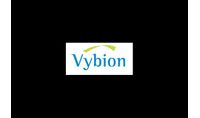

Vybion - Model INT41 -Orphan Drug Designation
INT41 has received Orphan Drug Designation from the FDA for Huntington’s disease. IND enabling studies for INT41 Gene Therapy for Huntington’s disease are in place following a preIND meeting with the FDA in in February 2022 in response to the briefing book prepared by our consultants at Latham BioPharm, a world class consulting group based in Cambridge MA.
- Huntington`s disease affects 5-7 individuals per 100,000 population globally
- Progressively lethal neurodegenerative disease
- $2.5B annual cost to healthcare
- In US 30,000 patients and 150,000 at risk
Huntington`s is an inherited progressive neurological disease that leads to loss of motor and cognitive functions, characterized by the death of specific nerve cells in the brain. Huntington`s disease results from a mutation that expands the CAG nucleotide encoding glutamine (Q) in the Huntingtin gene of patients to a length beyond 36 repeats of Q which results in disease age onset inversely correlated to polyQ length. The Huntingtin protein is critical for vesicle transport, cell-cell communication and cell division and is required for neuron development.
INT41 cell-based and animal model studies:
- Reduced loss motor function and had dramatic effects on cognitive function in the R6/2 animal model
- Increased turnover of mutant huntingtin "toxic" degradation fragments
- Reduced Gene Dysregulation
- Blocks binding of "toxic" mutant huntingtin fragments to chromatin/DNA
- Binds to huntingtin degradation fragments and does not bind to full length huntingtin protein
Polyglutamine Diseases:
Several inherited neurologic diseases are caused by polyQ expansion. Nine diseases have been identified: Huntington`s disease (HD), spinobulbar muscular atrophy (SBMA/SMA), six types of spinocerebellar ataxia (SCA). All patients with polyQ diseases present with progressive degeneration of a population of neurons in the central nervous system that are involved in motor control. INT41 may be a useful therapeutic in several of these diseases.
Patents for INT41 have been issued in North America, Asia, Australia, India and Europe.
